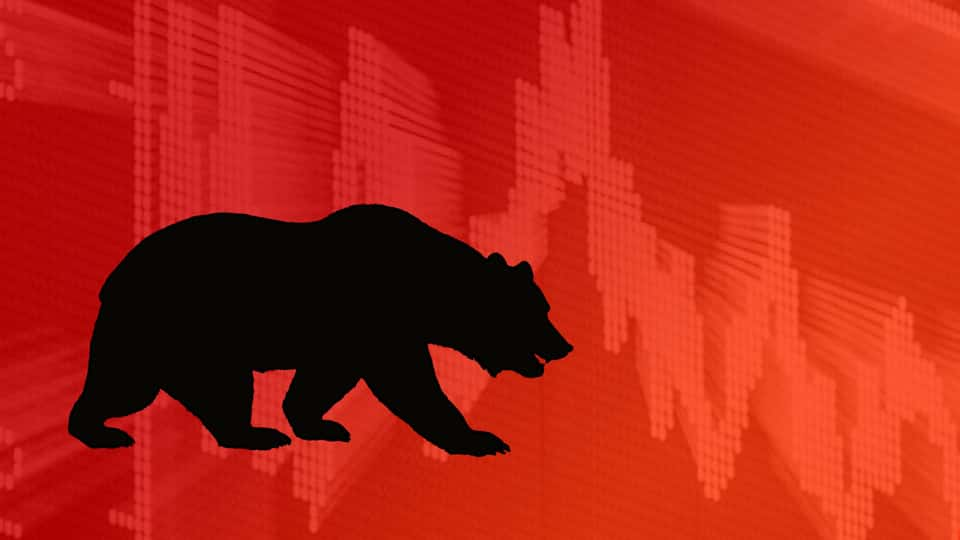Retail companies have been withstanding the worst of the global supply chain disruptions and multi-decade high inflation. As a result, aggregate consumer demand has dampened and there has been a notable shift in consumer spending from goods to services. Due to declining demand, retail companies are expecting potential inventory pileups and are, therefore, moving to adjust their inventory levels to match sales.
Following weak earnings in their fiscal first quarter, struggling retail companies have slashed their revenue and earnings guidance for fiscal 2022 due to several economic headwinds. Hard-hit retail stocks are expected to remain under pressure in the coming months due to deteriorating financials, their history of big losses, and bleak growth prospects.
Against this backdrop, we think the stocks of fundamentally weak retail companies Abercrombie & Fitch Co. (ANF - Get Rating) and Best Buy Co., Inc. (BBY - Get Rating) are best avoided.
Click here to checkout our Retail Industry Report for 2022
Abercrombie & Fitch Co. (ANF - Get Rating)
ANF in New Albany, Ohio, is a specialty retailer. The company operates through two segments: Hollister; and Abercrombie. It provides a wide range of apparel, personal care products, and accessories under the Hollister, Abercrombie & Fitch, Moose, Seagull, Gilly Hicks, and Social Tourist brands. It operates more than 730 retail stores in Europe, Asia, Canada, the Middle East, the United States, and internationally. The company sells products through its stores, various third-party arrangements, and e-commerce platforms.
In its fiscal 2023 first quarter, ended April 30, 2022, ANF’s gross profit decreased 9.2% year-over-year to $449.55 million. Its non-GAAP operating loss increased 110.5% from its year-ago value to $6.30 million. Its non-GAAP loss before income taxes grew 126.4% year-over-year to $13.61 million. And the company’s non-GAAP net loss attributable to ANF and net loss per share attributable to ANF came in at $13.97 million and $0.27, respectively, registering an increase of 131.8% and 140.3% year-over-year.
ANF lowered its sales outlook for fiscal 2022, anticipating that economic headwinds, including 40-year high inflation and supply chain disruptions, are expected to remain through the end of the year. The apparel retailer now expects its revenue to rise 2% compared to its prior forecast of 2% – 4% growth. According to Refinitiv consensus estimates, analysts were expecting an increase of 3.5% year-over-year.
The $0.26 consensus EPS estimate for its fiscal 2023 second quarter, ending July 31, 2022, represents an 84.7% decline from the same period last year. Ans the $846.51 million consensus revenue estimate for the current quarter represents a 2.1% year-over-year decrease.
The stock has slumped 43.2% in price over the past six months and 51% over the past year and closed yesterday’s trading session at $20.44. Its year-to-date decline translates to 41.6%.
ANF’s POWR Ratings are consistent with this bleak outlook. The POWR Ratings assess stocks by 118 distinct factors, each with its own weighting.
ANF has a grade of F for Sentiment. It has a D grade for Growth and Stability. Within the Fashion & Luxury industry, it is ranked #41 of 68 stocks.
To see ANF’s POWR Ratings for Quality, Value, and Momentum, click here.
Best Buy Co., Inc. (BBY - Get Rating)
BBY in Richfield, Minn., retails technology products in the U.S. and Canada. The company operates through two segments: Domestic; and International. Its stores offer computing products, such as desktops, notebooks, mobile phones, tablets, smartwatches, and consumer electronics. In addition, BBY’s stores provide appliances, including dishwashers, ovens, coffee makers, vacuums, various entertainment products, virtual reality, and other software products.
In its fiscal 2023 third quarter, ended April 30, 2022, BBY’s revenue decreased 8.5% year-over-year to $10.65 billion, and its gross profit declined 13.3% year-over-year to $2.35 billion. Its operating income declined 39.9% year-over-year to $462 million. In addition, the company’s net earnings and earnings per share amounted to $341 million and $1.49, respectively, registering a decrease of 42.7% and 35.8% from the prior-year period.
The company slashed its outlook for its fiscal 2022, citing softer demand and other macroeconomic headwinds. BBY now expects full-year revenue of $48.30 billion – $49.90 billion, compared with a prior outlook ranging between $49.30 billion -$50.80 billion. In addition, the company expects adjusted earnings per share to range between $8.40 – $9.00, down from the previously guided range of $8.85 – $9.15.
Analysts expect BBY’s revenue for its fiscal 2023 second quarter, ending July 31, 2022, to come in at $10.84 billion, indicating an 8.5% decline year-over-year. Also, the $1.86 consensus EPS estimate for the current quarter represents a 37.5% decline from the same period last year.
Shares of BBY have declined 19.6% in price year-to-date and 28.6% over the past year and closed yesterday’s trading session at $82.06.
BBY’s POWR Ratings reflect its poor prospects. The stock has a D grade for Stability, Momentum, and Growth. It is ranked #29 of 44 stocks in the Specialty Retailers industry.
To see additional POWR Ratings (Sentiment, Value, and Quality) for BBY, click here.
Click here to checkout our Retail Industry Report for 2022
Want More Great Investing Ideas?
ANF shares were trading at $20.56 per share on Wednesday afternoon, up $0.12 (+0.59%). Year-to-date, ANF has declined -40.97%, versus a -13.32% rise in the benchmark S&P 500 index during the same period.
About the Author: Mangeet Kaur Bouns

Mangeet’s keen interest in the stock market led her to become an investment researcher and financial journalist. Using her fundamental approach to analyzing stocks, Mangeet’s looks to help retail investors understand the underlying factors before making investment decisions. More...
More Resources for the Stocks in this Article
| Ticker | POWR Rating | Industry Rank | Rank in Industry |
| ANF | Get Rating | Get Rating | Get Rating |
| BBY | Get Rating | Get Rating | Get Rating |






